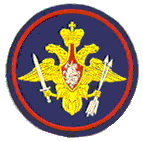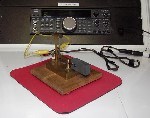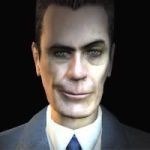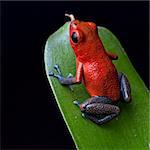Banana Republic Newsflash
Re: Banana Republic Newsflash
I read that one. Totally unbelievable. Well ok not really after reading this thread, but you know what I mean. 
Yes, I have a life. It's quite different from yours.
-

Rommie - Posts: 4098
- Joined: Mon May 27, 2013 10:04 am
Re: Banana Republic Newsflash
"Latin America is the Continent of Magical Realism"
Never found out who actually is the author of that quote, but it's true in more ways than one.
Never found out who actually is the author of that quote, but it's true in more ways than one.
Sic Transit Gloria Mundi
-

Sigma_Orionis - Resident Oppressed Latino
- Posts: 4498
- Joined: Mon May 27, 2013 2:19 am
- Location: The "Glorious Socialist" Land of Chavez
Re: Banana Republic Newsflash
Gasoline prices doubling? Tripling? Quadrupling and more, to 25₵ per gallon?!?!?
However will the populace react to this capitalistic indignity?
[/snark]
However will the populace react to this capitalistic indignity?
[/snark]
Dear Algebra -- stop asking us to find your x. She's not coming back - ever. Get over it.
-

cid - Database Ninja Level 1
- Posts: 829
- Joined: Fri May 31, 2013 7:37 pm
Re: Banana Republic Newsflash
According to all political animals in the country, LIKE THIS
Sic Transit Gloria Mundi
-

Sigma_Orionis - Resident Oppressed Latino
- Posts: 4498
- Joined: Mon May 27, 2013 2:19 am
- Location: The "Glorious Socialist" Land of Chavez
Re: Banana Republic Newsflash
Sic Transit Gloria Mundi
-

Sigma_Orionis - Resident Oppressed Latino
- Posts: 4498
- Joined: Mon May 27, 2013 2:19 am
- Location: The "Glorious Socialist" Land of Chavez
Re: Banana Republic Newsflash
this is why Simon Bolivar, compared his efforts to create a southern eqiuvalent to the USA to "plowing the sea".
"We don't let them have ideas. Why would we let them have guns?" Stalin
-

Morrolan - Posts: 227
- Joined: Fri May 31, 2013 1:09 am
Re: Banana Republic Newsflash
So, you've read about the Mantuano. Bolivar's forerunner Francisco de Miranda once (in the early 19th Century) described this country as "Bochinche, Bochinche, Bochinche" which can be roughly translated as "ruckus, ruckus, ruckus".
Sic Transit Gloria Mundi
-

Sigma_Orionis - Resident Oppressed Latino
- Posts: 4498
- Joined: Mon May 27, 2013 2:19 am
- Location: The "Glorious Socialist" Land of Chavez
Re: Banana Republic Newsflash
it's sad, really. so much potential, so little actual progress. one step forward, ten steps back; a repeat of the 90s, which was a repeat of the 80's which was a repeat of the 70s... 

"We don't let them have ideas. Why would we let them have guns?" Stalin
-

Morrolan - Posts: 227
- Joined: Fri May 31, 2013 1:09 am
Re: Banana Republic Newsflash
Absolutely.
BTW, since you seem to know about the Mantuano, you might find this of interest:
Also, Peruvians don't like him very much, they consider that Argentinian Jose de San Martin was the one who liberated Peru from Spanish Rule.
BTW, since you seem to know about the Mantuano, you might find this of interest:
In one of Bolívar's most morally dubious acts, Bolívar and the others arrested and handed Miranda over to the Spanish Royal Army. Bolívar claimed afterwards that he wanted to shoot him as a traitor but was restrained by the others; Bolívar's reasoning was that "if Miranda believed the Spaniards would observe the treaty, he should have remained to keep them to their word; if he did not, he was a traitor to have sacrificed his army to it." Ironically, it was by handing over Miranda to the Spanish that Bolívar assured himself a passport from the Spanish authorities (passports which, nevertheless, had been guaranteed to all republicans who requested them by the terms of the armistice), which allowed him to leave Venezuela unmolested.
Also, Peruvians don't like him very much, they consider that Argentinian Jose de San Martin was the one who liberated Peru from Spanish Rule.
Sic Transit Gloria Mundi
-

Sigma_Orionis - Resident Oppressed Latino
- Posts: 4498
- Joined: Mon May 27, 2013 2:19 am
- Location: The "Glorious Socialist" Land of Chavez
Re: Banana Republic Newsflash
interesting.
i guess the basic elements of how you had to have money and position in order to be in a place to resist the powers that be (or indeed your direct liege). for all intents and purposes, George Washington was a traitor to his king.
i guess the basic elements of how you had to have money and position in order to be in a place to resist the powers that be (or indeed your direct liege). for all intents and purposes, George Washington was a traitor to his king.
"We don't let them have ideas. Why would we let them have guns?" Stalin
-

Morrolan - Posts: 227
- Joined: Fri May 31, 2013 1:09 am
-

Sigma_Orionis - Resident Oppressed Latino
- Posts: 4498
- Joined: Mon May 27, 2013 2:19 am
- Location: The "Glorious Socialist" Land of Chavez
Re: Banana Republic Newsflash
not one bit...
'Those that cannot remember the past are condemned to repeat it' George Santayana
'Those that cannot remember the past are condemned to repeat it' George Santayana
"We don't let them have ideas. Why would we let them have guns?" Stalin
-

Morrolan - Posts: 227
- Joined: Fri May 31, 2013 1:09 am
Re: Banana Republic Newsflash
Nobody Remembers Recadi Either
We had currency exchange restrictions in the 80s (from 1983 till 1989) through a government office called "RECADI" all they managed to do was create a very thriving black market out of the loopholes of the law.
Now we got the same thing (and has been going on for the last 11 years), but the office is called "CADIVI" and all the Bolivarian Idiots have managed to do was create an even bigger black market.
BTDTGTTS
We had currency exchange restrictions in the 80s (from 1983 till 1989) through a government office called "RECADI" all they managed to do was create a very thriving black market out of the loopholes of the law.
Now we got the same thing (and has been going on for the last 11 years), but the office is called "CADIVI" and all the Bolivarian Idiots have managed to do was create an even bigger black market.
BTDTGTTS
Sic Transit Gloria Mundi
-

Sigma_Orionis - Resident Oppressed Latino
- Posts: 4498
- Joined: Mon May 27, 2013 2:19 am
- Location: The "Glorious Socialist" Land of Chavez
Re: Banana Republic Newsflash
Gee, I guess that the Revolution is less important than the dictatorship of the evil imperialist US Dollar.
Ecuadorean airline Tame suspends flights to Venezuela
Ecuadorean airline Tame suspends flights to Venezuela
Sic Transit Gloria Mundi
-

Sigma_Orionis - Resident Oppressed Latino
- Posts: 4498
- Joined: Mon May 27, 2013 2:19 am
- Location: The "Glorious Socialist" Land of Chavez
Re: Banana Republic Newsflash
More Protests, now by students, and guess who is pulling the strings behind the scene? You damned Evil imperialist Gringo infidels of course! who else?
You can deny it all you want but our Glorious Foreign Relations Minister knows better
You can deny it all you want but our Glorious Foreign Relations Minister knows better
Sic Transit Gloria Mundi
-

Sigma_Orionis - Resident Oppressed Latino
- Posts: 4498
- Joined: Mon May 27, 2013 2:19 am
- Location: The "Glorious Socialist" Land of Chavez
Re: Banana Republic Newsflash
Nicky is pissed off at CNN
Mr Maduro also lashed out against the coverage of the protests by foreign news organisations.
"Enough war propaganda, I won't accept war propaganda against Venezuela. If they don't rectify themselves, out of Venezuela, CNN, out," he said.
A spokeswoman for the US network, only available on cable in Venezuela, told the BBC it did not have any immediate comments about Mr Maduro's comments.
Last week, the government removed Colombian TV news channel NTN24 from channels offered by Venezuelan cable operators.
The government has been highly critical of international media coverage, while protesters say they are concerned with a lack of media freedom, says the BBC's correspondent in Caracas, Irene Caselli.
Mr Maduro also ordered the expulsion of three US diplomats this week.
US President Barack Obama said the Venezuelan government should address "legitimate grievances" of the country instead of "making up false accusations" against US officials.
Sic Transit Gloria Mundi
-

Sigma_Orionis - Resident Oppressed Latino
- Posts: 4498
- Joined: Mon May 27, 2013 2:19 am
- Location: The "Glorious Socialist" Land of Chavez
Re: Banana Republic Newsflash
Well, Nicky just revoked the permits of two CNN journalists
Venezuela 'revokes accreditation and visas' of CNN journalists
Venezuela 'revokes accreditation and visas' of CNN journalists
Sic Transit Gloria Mundi
-

Sigma_Orionis - Resident Oppressed Latino
- Posts: 4498
- Joined: Mon May 27, 2013 2:19 am
- Location: The "Glorious Socialist" Land of Chavez
Re: Banana Republic Newsflash
Pope pleads for 'end to violence' in Venezuela
Since the Pope asked for it, I was so inspired by it that I went to work this morning........
Since the Pope asked for it, I was so inspired by it that I went to work this morning........
Sic Transit Gloria Mundi
-

Sigma_Orionis - Resident Oppressed Latino
- Posts: 4498
- Joined: Mon May 27, 2013 2:19 am
- Location: The "Glorious Socialist" Land of Chavez
Re: Banana Republic Newsflash
Those Damned Facist Rigth Wingers at the New York Times are posting "fake" rabble-rousing stories about the riots to make our Glorious Socialist Government look bad.
It's the first actual info I've got from where the bulk of the riots are (In the City of San Cristobal, capital city of the state of Tachira, right by the border of Colombia). Because the local news black out has been quite effective.
Edited for Spelling
It's the first actual info I've got from where the bulk of the riots are (In the City of San Cristobal, capital city of the state of Tachira, right by the border of Colombia). Because the local news black out has been quite effective.
Edited for Spelling
Sic Transit Gloria Mundi
-

Sigma_Orionis - Resident Oppressed Latino
- Posts: 4498
- Joined: Mon May 27, 2013 2:19 am
- Location: The "Glorious Socialist" Land of Chavez
-

Sigma_Orionis - Resident Oppressed Latino
- Posts: 4498
- Joined: Mon May 27, 2013 2:19 am
- Location: The "Glorious Socialist" Land of Chavez
Re: Banana Republic Newsflash
it's a shit sandwich...
be safe, my friend.
be safe, my friend.
"We don't let them have ideas. Why would we let them have guns?" Stalin
-

Morrolan - Posts: 227
- Joined: Fri May 31, 2013 1:09 am
Re: Banana Republic Newsflash
what about the upheaval in Caracas?
"To create more positive results in your life, replace 'if only' with 'next time'." — Author Unknown
"Experience is a hard teacher because she gives the test first, the lesson afterward." — Vernon Law
"Experience is a hard teacher because she gives the test first, the lesson afterward." — Vernon Law
-

SciFiFisher - Redneck Geek
- Posts: 4929
- Joined: Mon May 27, 2013 5:01 pm
- Location: Sacramento CA
Re: Banana Republic Newsflash
It has been going on all week, mostly roadblocks. Nothing like what's being reported from San Cristobal.
The bit about the retired general, ah yes, heard about it yesterday. Apparently he told police "come and get me if you can" when they came for him.
Yesterday I went to work. Much quieter than Monday. and saw no roadblocks. When I came back from work I saw the remains of a barricade with a banner that said "Enough with the Country of Scarcity".
Like I said on the other thread, the government decreed that Thursday and Friday will be non-working holidays. And that ties in with the extra-long Carnival weekend, so in essence most people (including me) won't go to work till next Wednesday. In the meantime, as the article you linked said, Nicky is calling for a meeting. I presume that he expects that a lot of average joes will be out of town for the extended holidays (which is pretty normal) and reduce the potential amount of people in marches and demonstrations.
The bit about the retired general, ah yes, heard about it yesterday. Apparently he told police "come and get me if you can" when they came for him.
Yesterday I went to work. Much quieter than Monday. and saw no roadblocks. When I came back from work I saw the remains of a barricade with a banner that said "Enough with the Country of Scarcity".
Like I said on the other thread, the government decreed that Thursday and Friday will be non-working holidays. And that ties in with the extra-long Carnival weekend, so in essence most people (including me) won't go to work till next Wednesday. In the meantime, as the article you linked said, Nicky is calling for a meeting. I presume that he expects that a lot of average joes will be out of town for the extended holidays (which is pretty normal) and reduce the potential amount of people in marches and demonstrations.
Sic Transit Gloria Mundi
-

Sigma_Orionis - Resident Oppressed Latino
- Posts: 4498
- Joined: Mon May 27, 2013 2:19 am
- Location: The "Glorious Socialist" Land of Chavez
Re: Banana Republic Newsflash
Be safe Sigma
Never, ever forget: we did this. This is what we can do.
In wilderness is the preservation of the world. - Henry David Thoreau
Never doubt that a small group of thoughtful, committed citizens can change the world; indeed, it's the only thing that ever has. - Margaret Mead
In wilderness is the preservation of the world. - Henry David Thoreau
Never doubt that a small group of thoughtful, committed citizens can change the world; indeed, it's the only thing that ever has. - Margaret Mead
-

Swift - Posts: 2353
- Joined: Wed May 29, 2013 2:40 am
- Location: At my keyboard
Who is online
Users browsing this forum: No registered users and 3 guests
